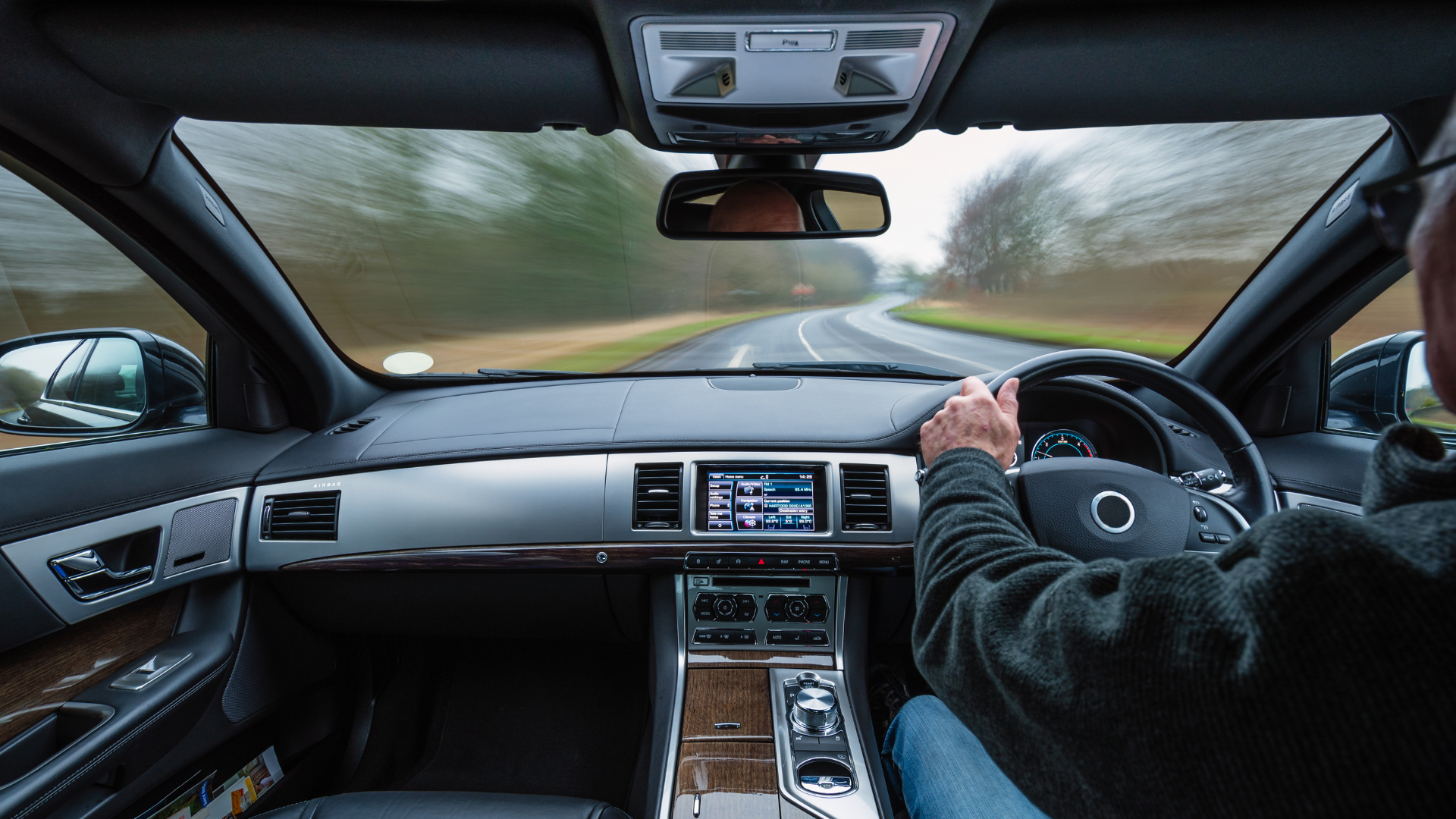
A helpful guide to driving with glaucoma
If you’re diagnosed with glaucoma, one of the first questions you might ask yourself is ‘will I have to stop driving’. However, losing your license and independence isn’t always inevitable.
The damage glaucoma causes to the optic nerve means most people with the condition lose sight at the edge (peripheral) of their visual field first. This means when looking straight ahead at the road or turning their head to look for other vehicles, people with glaucoma are unlikely to notice any initial problems.
In fact, people can lose up to 40% of their peripheral vision without even noticing. As a result, a glaucoma diagnosis can be shocking for many and cause immediate worries about being unable to drive in the near future.
However, if someone gets an early diagnosis and the right treatment, people living with glaucoma can slow the condition’s progression and keep their license. This article will give you helpful advice on driving and maintaining your independence with glaucoma.
How glaucoma affects driving
Glaucoma damages the optic nerve at the back of the eye. This means the signals being sent from the eye to the brain are disrupted. In the early stages of the condition, this causes areas of sight loss on the edges of peoples’ vision, otherwise known as the off-centre or peripheral areas of their visual field.
With central vision sight loss not occurring until the later stages, many people with glaucoma may not notice these blind spots. This is particularly the case if they only have the condition in one eye, as the other eye can compensate for losses in peripheral vision.
However, if glaucoma is present in both eyes, blind spots can overlap. Though the brain will try to fill in these areas, the final image produced won’t be accurate. For drivers, this means they may not be able to see other vehicles, pedestrians or road users clearly, with potentially serious consequences, particularly if someone with glaucoma is driving at night.
Do you need to tell the DVLA about glaucoma?
Those diagnosed with glaucoma need to inform the DVLA of their condition if:
However, if someone with a standard car and motorcycle license has only been diagnosed with glaucoma in one eye, then you don’t need to tell the DVLA. You also don’t need to inform them if you have ocular hypertension in one or both eyes.
It’s a legal requirement to let the DVLA know about a glaucoma diagnosis in the above cases. Otherwise, you might be given a fine of up to £1,000, your car insurance won’t be valid and, as a result, you may be prosecuted.
To inform the DVLA of your diagnosis, you need to fill out their online form or send in an updated V1 form. Once they’ve received these details, the DVLA will be in touch to let you know the status of your license and whether you need to undergo specialist eye tests.
Depending on the specific terms and conditions of your car insurance policy, you may need to inform your provider of your diagnosis too. So it’s important to check through any policy documents to see if this is a requirement for your specific glaucoma diagnosis.
How do DVLA glaucoma eye tests work?
Once you’ve informed the DVLA of your glaucoma diagnosis, they may ask you to undergo a visual acuity and visual field test. This has to be carried out by an approved optometrist, which includes all Specsavers branches. The DVLA will include all the approved opticians local to you in the letter informing you of test requirements.
It’s then your responsibility to book and attend these tests as soon as possible. Unlike a standard test, the optometrist will review the vision in both eyes at the same time. They may also ask you to complete the tests with and without any prescribed glasses or contact lenses.
The tests will examine the following:
The results of these tests will be sent directly to the DVLA, who will then review them before letting you know the status of your driving license. This may include a temporary suspension for up to five years or complete removal.
However, if you disagree with their decision, you can appeal and have another test with your optometrist of choice, at your cost.
When to stop driving with glaucoma
Although many people diagnosed with glaucoma worry that the condition will stop them from driving, only 12% of drivers lose their license as a result of glaucoma-related sight loss.
This is usually because getting an early diagnosis, regular monitoring and the right treatment can significantly slow the condition’s progression. It is particularly important to follow the advice of your clinician, especially around the use of eye drops.
The eye drops prescribed for glaucoma control the pressure in the eye to prevent further damage to the optic nerve. Regular monitoring and adherence to your treatment plan will reduce the likelihood of glaucoma causing enough sight damage for drivers to lose their licenses.
By providing patients with affordable and reliable care to monitor their condition, Ocuplan can help people living with glaucoma retain their independence and driving license. With tests and scans at their local opticians and in-person appointments with their consultants, our patients get regular reviews of their condition and professional advice on how to protect their sight for longer.
Plus, with the new OcuPlan free service, glaucoma patients can get guidance and reassurance whenever they need it through our ‘rapid advice line’ and ‘ask a consultant’ services. This means they can take all the steps they need to protect their sight, driving license and independence.
About OcuPlan
OcuPlan offers the gold standard of clinical care for patients with long-term eye conditions to help minimise the risk of sight loss.